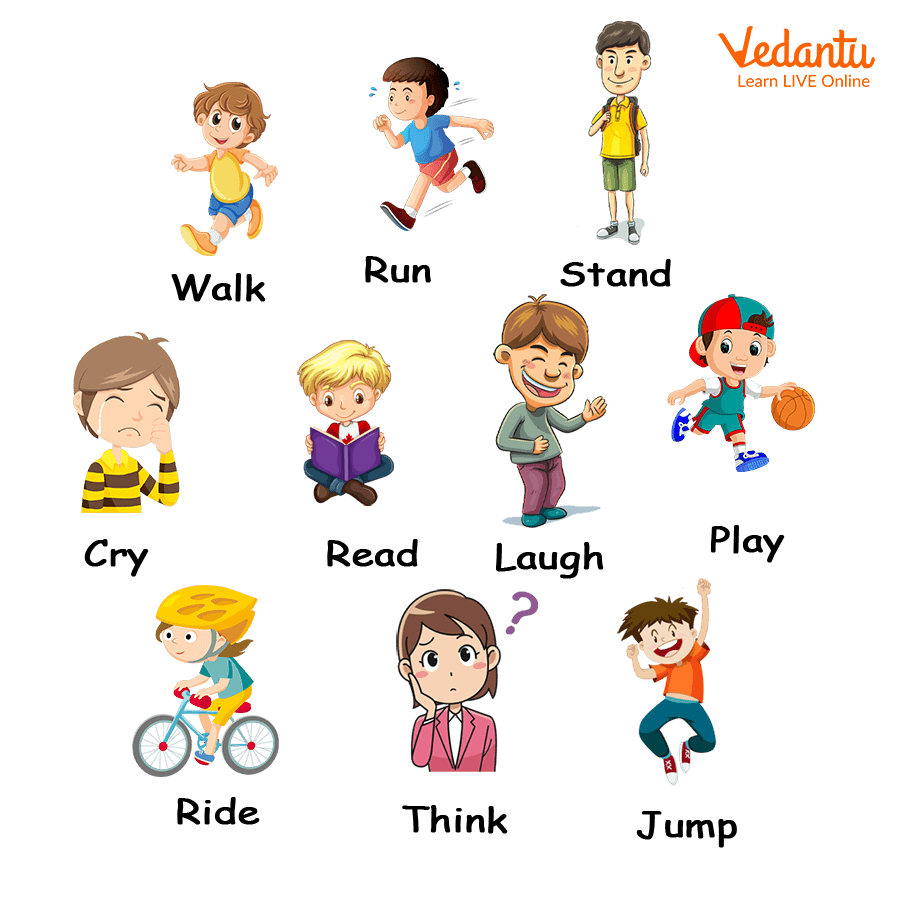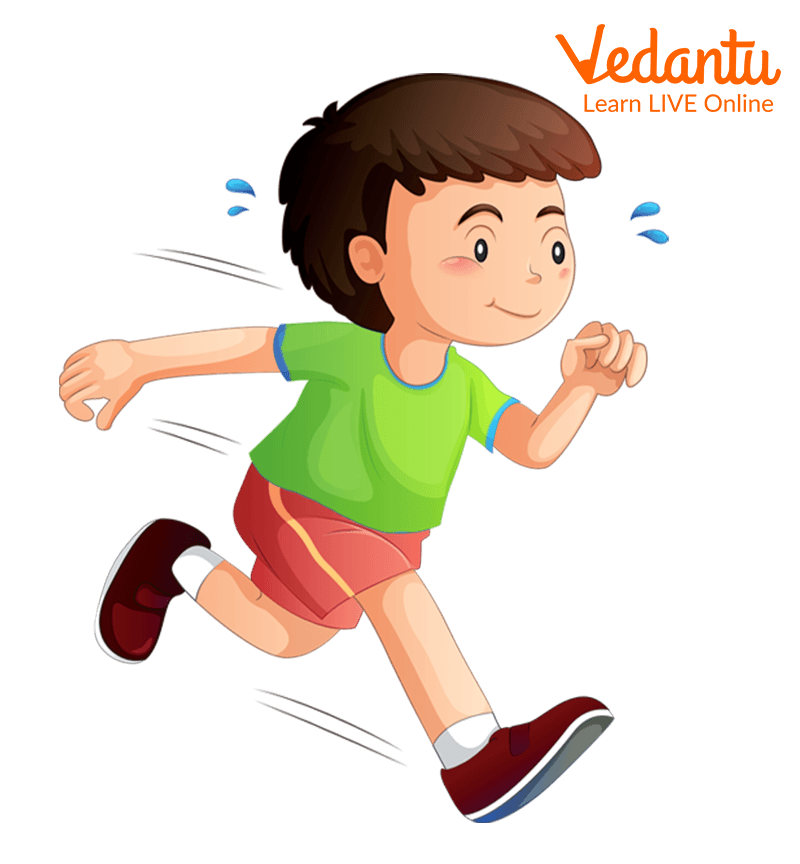




How to Learn and Practice Action Words with Easy Exercises
In everything we do, there is involved an action or motion which helps us complete the sentence. Any word which helps us in describing the physical action or the mental action is known as ‘verbs’. The verbs are used to make a sentence sound sensible. Let’s learn more about verbs for kids.

The Action Words are Known as Verbs.
Physical Verbs
Physical verbs are also known as action verbs. Examples of physical verbs are -
She sells flowers in her lane.
Matt swept the kitchen floor.
Mental Verbs
Verbs which consist of meanings that are related to the concepts are called mental verbs. For example:
She knows the puzzle by heart.
Ram believes honesty is the best policy.
How Do You Recognise a Verb?
A verb can be identified by the location of the subject. Verbs mostly come after a noun or a pronoun which are referred to as the ‘subjects’ in a sentence.
For example, Ram was thinking about a plan.
Here, the verb is ‘thinking’, which comes after the subject ‘Ram’. Other examples are as follows:
Steve eats his lunch slowly.
We went to the shop to buy flowers.
You write very neatly on the board.
They thought about a brilliant magic trick for the function.
What are the Types of Verbs for Kids?
There are many types of verbs that are used for various actions. Let us have a look at the list of verbs:
Action Verbs
Transitive Verbs
Intransitive Verbs
Auxiliary Verbs
Stative Verbs
Modal Verbs
Phrasal Verbs
What are Action Verbs?

Run is an Action Verb
Action verbs describe the action that is represented in the sentence and complete a sentence. Action verbs are as follows:
Run
Dance
Slide
Jump
Think
Do
Go
Stand
Smile
Listen
What are Transitive Verbs?

Love is an Example of the Transitive Verb.
Verbs that represent any doable activities which affect someone or something are called transitive verbs. For example:
Love
Respect
Tolerate
Believe
Maintain
What are Intransitive Verbs?
These verbs also represent doable actions. But they are very much different from transitive verbs as there is no presence of any direct object which is required to be followed by the intransitive verbs. Intransitive verbs include:
Walk
Laugh
Cough
Play
Run
What are Auxiliary Verbs?
These are the connecting verbs. They connect the main verbs in the sentence. Examples are:
Would
Should
Do
Can
Did
Could
May
What are Stative Verbs?
Stative verbs represent actions which are displayed while it is stated. They relate to the thoughts, emotions, relationships, senses etc. Examples of static verbs are:
Disagrees
Doubts
Believes
Wanted
What are Modal Verbs?
Modal verbs are the verbs that express possibilities, abilities, permissions and even obligations. Examples include,
Should
Must
Would
May
What are Phrasal Verbs?
These verbs are not a single one-word verb, rather they relate to a complete phrase. Examples of phrasal verbs are:
Run out
Get out
Face up
Hand out
Think Through
Run across
In this article, we have learned about different types of verbs. Verbs are integral elements of a sentence. It helps students to understand the structure of the sentence. There are other components of sentences such as preposition, adjective, noun, etc. are also present. Students must know all these components. To know and learn these components, visit our website.
FAQs on Verbs The Action Words For Kids
1. What is the main verb?
The main verb is the verb which typically gives us a clear image of what the subject in the sentence doing. Example: Mani did not water the plants. Here the main verb is water while did is the auxiliary verb.
2. Are verbs for kids required to be written in the sentence?
If the sentence wants to show that the subject is doing any physical or mental action then usage of the verb is mandatory there, else it will not make complete sense.















